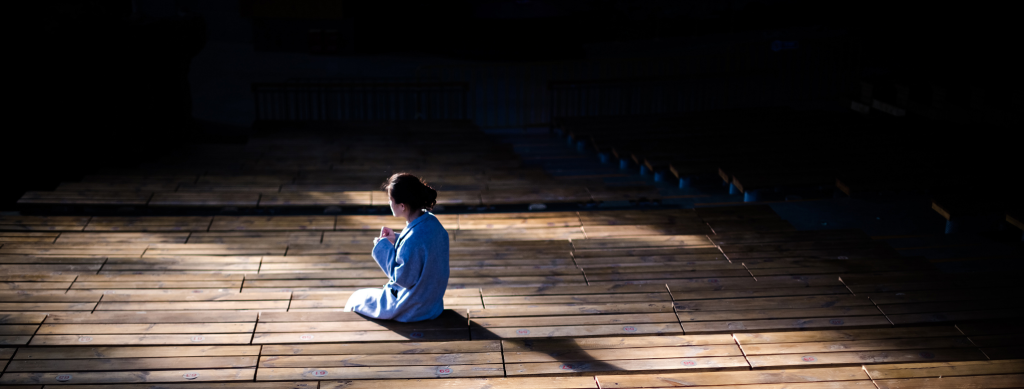
No small amount of life is waiting. We wait in lines—longer than usual when spaced six feet apart. We wait to hear diagnoses, both good and bad, from doctors. We keep vigil at birth and death—waiting for one beloved life to arrive and another to depart. We wait to receive final grades, school and job placements, and the surprising appearance of love in our lives.
These days we wait to hear COVID trends, the latest number of deaths, hospitalizations, and cases. We wait for updates from the CDC and the MN Governor’s office. We have waited for the development of a vaccine and now we are waiting for its distribution. As we wait, we plan tentatively, more aware now of the uncertainty that has always been with us.
“How long, oh God?” is the perpetual cry and prayer of waiting humans. Kids ask, “How long till we get there?” and “How long until Christmas?” Adults repeat the question in more sophisticated yet still urgent forms. Early Christian communities asked, “How long until Jesus comes again in fullness, wiping away our tears, restoring our hopes, in short, redeeming the whole earth and all its inhabitants?”
Waiting is not easy, especially in the midst of collective worry. In his book, Finding My Way Home, Henri Nouwen wrote,
“The more afraid we are, the harder waiting becomes.”
No wonder we have so much COVID fatigue and are ready to throw caution to the wind at times. Fear courses through our collective body making it hard to wait and to trust that life will emerge from so much loss.
Advent is a season of waiting (especially in fear and darkness), and if we let it, it can shape us into a people who wait courageously. This does not imply the absence of fear, worry, or uncertainty. Quite the opposite actually: courageous waiting vulnerably acknowledges our fears and needs for steadfast patience, trust, and resilience. In this way, courageous waiting is infused with hope, sometimes hope against hope. Again, Nouwen wrote,
“If we wait in the conviction that a seed has been planted and that something has already begun, it changes the way we wait. . . . [We wait] with the conviction that something is happening where we are and that we want to be present to it.”
If we trust that life will emerge from death, that light will pierce the darkness, and that love will vanquish all fear (and its many destructive manifestations), then the question remains: How do we wait courageously, especially in this season of heightened worry and insecurity, upheaval and uncertainty? What bolsters our ability to wait? While there is no single answer, Christian spirituality and mindfulness suggest the following:
Notice and acknowledge your fear, worry, anxiety. Nod politely to your fear, “I see you there. I feel you.” Such noticing may keep our ruminations at bay.
Be still. Sit. Savor a cup of tea. Listen to the sounds around you. Breathe intentionally for five or ten minutes at a time.
Slow down your pace. Set aside the inner and outer demands that inhibit rest. One Catholic author put it this way: “Advent is like taking a deliberately slow walk surrounded by sprinters.”
Notice when you start to rush or when you get caught up in your pre-Christmas to-do list. Then gently place your attention back on the present moment.
Listen to and sing Advent carols that emphasize waiting. Some of my favorites include My Soul in Stillness Waitsand Patience, Peopleand Soon and Very Soon.
Practice an Advent ritual that quiets your heart and mind—e.g., lighting candles, fasting, simple cooking, setting up a nativity scene and moving the characters closer to the manger as the days pass. Or choose a new ritual. In our house, we have taken up mindful coloring on Sundays, a practice that often continues throughout the week.
Accept (again and again) that you are not in control. You cannot create, heal, or resurrect life. You can anticipate, wait, and prepare for its coming, however. Anthony Fauci said early on in the pandemic, “We don’t set the timeline. The virus sets the timeline.” There’s something profound here to be learned about watching, waiting, learning, responding, and then learning some more.
Wait with others who are waiting on God. Human existence is fundamentally co-existence. We belong to, with, and for each other. We need mutual encouragement, assistance, kindness, respect and understanding. Together we pray, “How long?” And together we await God’s coming in our midst.
*Theresa F. Latini, Ph.D. is the Executive Director of Mount Olivet Conference & Retreat Center and an ordained minister in the Presbyterian Church (USA)
Discover more from Mount Olivet Conference & Retreat Center
Subscribe to get the latest posts sent to your email.
Once again I am lifted by your words. I pray for you and I await a better time to socialize.
Thank you, Sue. I so look forward to the days when we can visit and celebrate!
Thank you!
That is beautiful – thank you so much.